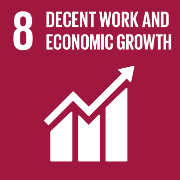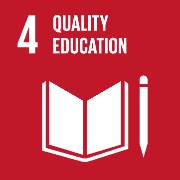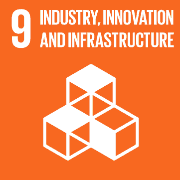This platform aims to provide TVET stakeholders and practitioners with information on free-to-use toolkits that are available online. The purpose of such toolkits ranges from facilitating TVET providers' 'self-reflection' on aspects of their provision to quantitative performance assessments. Some toolkits have a thematic focus (e.g. on digitalization or greening) whereas others have an organizational focus. For some themes, there are multiple toolkits, for example to assess and/or reflect upon teacher/trainer training needs. The purpose of this database is to bring the many and varied toolkits into one place and to provide a guide and resource for:
In the table below, you can find a summary of the toolkits and a link to each one.
 Click here for more information
Click here for more information
Key Questions Synthesis Overview
1. How has a toolkit been defined?
A toolkit is defined as a resource or group of resources which support TVET providers to self-assess and/or to support their development in improving their organization and/or TVET provision and delivery. Toolkits comprise a range of ‘tools’ from checklists, to training resources, to assessment questionnaires. These tools may be presented in an online interactive format (such as the EU’s SELFIE) or designed for providers to work with on their own.
2. What are some similarities and differences between them?
The toolkits vary in length, target audience, theme, tools used and geographic region. Some toolkits are industry specific while others are more general and focus on various industries in TVET. The toolkits have been produced by a wide variety of publishers from around the world, some with a regional focus and others with a global focus. All the toolkits in this repository have undergone a review process using criteria related to relevance, date of publication, toolkit usability, and accessibility.
3. What are the topics and themes of a toolkit?
The toolkits are categorized by geographic region, tools, target groups, thematic areas and the UN’s Sustainable Development Goals (SDGs) as listed in the filtering menus.
4. Who are these toolkits for?
The primary target group for each of the toolkits are TVET providers and practitioners. Some are specific to a TVET pathway, for example, there are multiple toolkits for apprenticeships. Other toolkits are occupationally specific, for example, there are toolkits to identify new skills needs in the hospitality and tourism sector which may be useful for labour market partners. The database includes toolkits designed to support TVET in the absence of a strong TVET policy making sector (e.g. the toolkits created for practitioners in developing countries). The table of toolkits links to a summary description for each toolkit included.
5. What does a toolkit contain?
A toolkit contains various materials. In some examples, the toolkits are designed to be ‘diagnostic’ in their nature – to identify strengths and weaknesses of a TVET provider and its provision. Others are designed to stimulate reflection and to prepare action plans. There are also examples of toolkits which include training materials. The toolkits can contain a single tool, such as a self-assessment, or multiple tools, such as best practices, recommendations and templates. Sixteen different types of tools can be found on the online repository, including assessments, best practices, case studies, checklists, frameworks, guidelines, interviews, online resources, recommendations, research, samples, surveys, templates, website, worksheets and workshop agendas.
6. How were the toolkits selected?
The toolkits were selected using a decision matrix following the initial research and collection of TVET toolkits. Selection criteria included an assessment of their relevance for TVET, their online accessibility and their applicability to TVET target groups. Only toolkits created post 2017 were eligible for consideration.
7. How do I use this repository?
The online repository of TVET toolkits was created to be intuitive and easy to navigate, with the list of toolkits available on the homepage including filtering options on the headings of the toolkit list as well as a search bar. To filter, click the down arrow on the heading and select the applicable geographic region, tool(s), target group(s), thematic area(s), and/or SDG(s). The list will then display the relevant toolkits related to the filters selected. The search bar can also be used to find relevant toolkits by searching keywords related your needs (i.e., inclusion, skills, quality assurance, labour market, industry, etc.).
8. How do I use a toolkit?
TVET institutions and stakeholders are encouraged to find and use appropriate toolkits to help address multiple economic and societal demands which are in constant change. This toolkit platform provides TVET institutions and stakeholders with access to online resources that can provide guidance and inform changes to both organizational and managerial practices and processes in various thematic areas. The toolkits included in this repository help TVET institutions and stakeholders worldwide plan and prepare to deliver quality education with improved learning outcomes.
Once you find a toolkit(s) through the repository’s search and filter options, you can link directly to it and download the resources that are provided in a variety of formats. Watch the guided online tour on how to find the toolkits best suited to your needs and use resources posted on this site.
9. Is this repository updated?
UNEVOC will update this online repository of TVET toolkits continuously. If you are interested in submitting a toolkit to be added to this online repository, please use the link below.
Submit a toolkit
Next Tourism Sector Skills Toolkit 
The Tourism Sector Skills Toolkit consists of a set of resources with guidance notes on how they can be used by educational establishments, training providers, employers, government departments, and individuals to enable them to review the green, social and digital requirements within the hospitality and tourism sector and to use the toolkit to support them in developing and/or updating their resources. The toolkit can be used to: (a) map against existing training and qualifications, job profiles, training needs analysis, job descriptions, responsibilities, tasks, etc. for the stakeholder to identify skills, knowledge and behaviours already present and identify gaps; (b) inform and support the development of curriculul and training programmes within educational establishments, training providers, employers training and HR departments; (c) inform and support developing job profiles, recruitment campaigns, development and training plans; (d) show skill and knowledge requirements that may be required to progress within or move between sectors/roles (e) access useful examples to contextualise the data and help give insight as to how the skills and knowledge can be used by training providers, employers and individuals; (f) provide training providers and employers examples of good practice and resources.
PUBLISHED BY: Next Tourism Generation (NTG), 2020
TOOLS: Best practices, Curriculum design, Operational guidelines, Benchmarking survey, Checklists/worksheets, Management tool,
TARGET GROUP(S): Labour market (social) partners, Curriculum developers , Sector-based organisations, Policy makers, Teachers/trainers, Training providers, TVET managers
GEOGRAPHIC AREA(S): Global
KEYWORDS: greening TVET, digitalization, skills development, assessment, TVET management, tourism, resources







